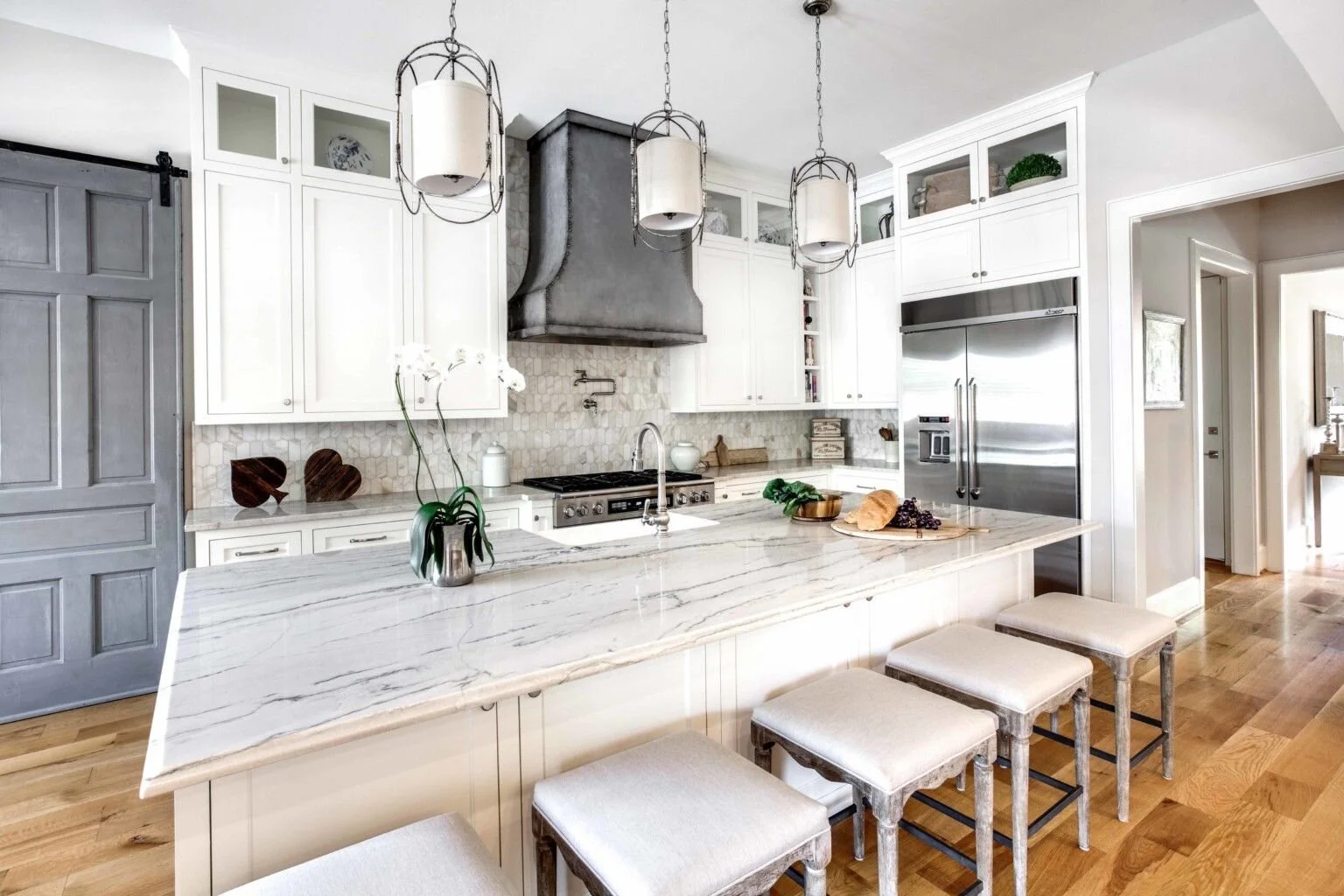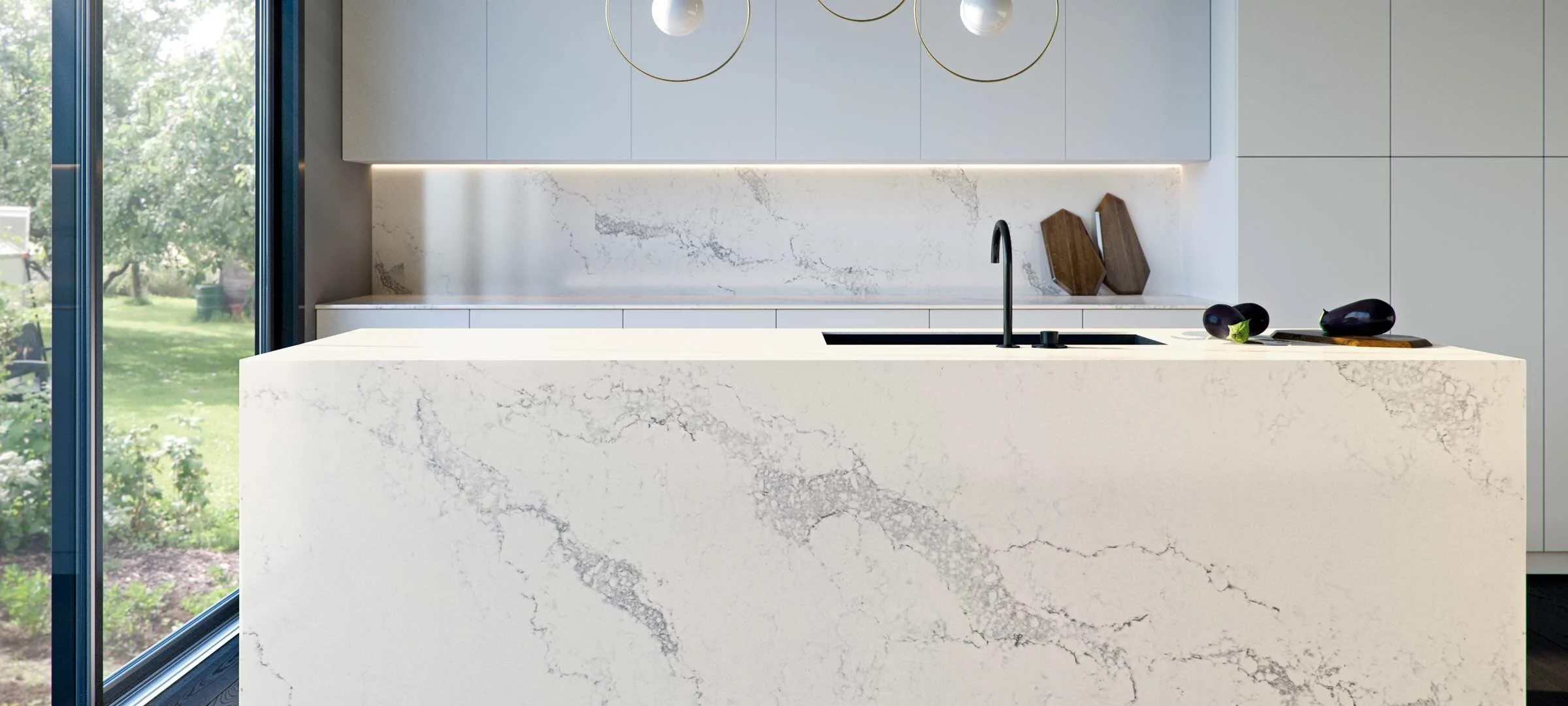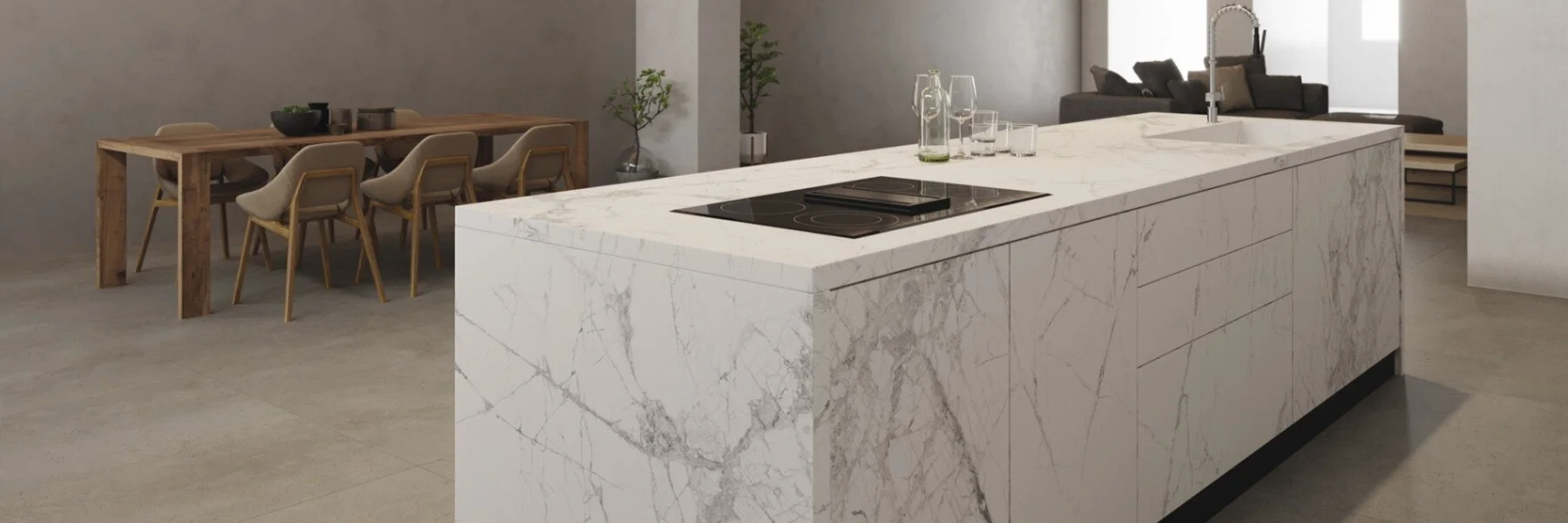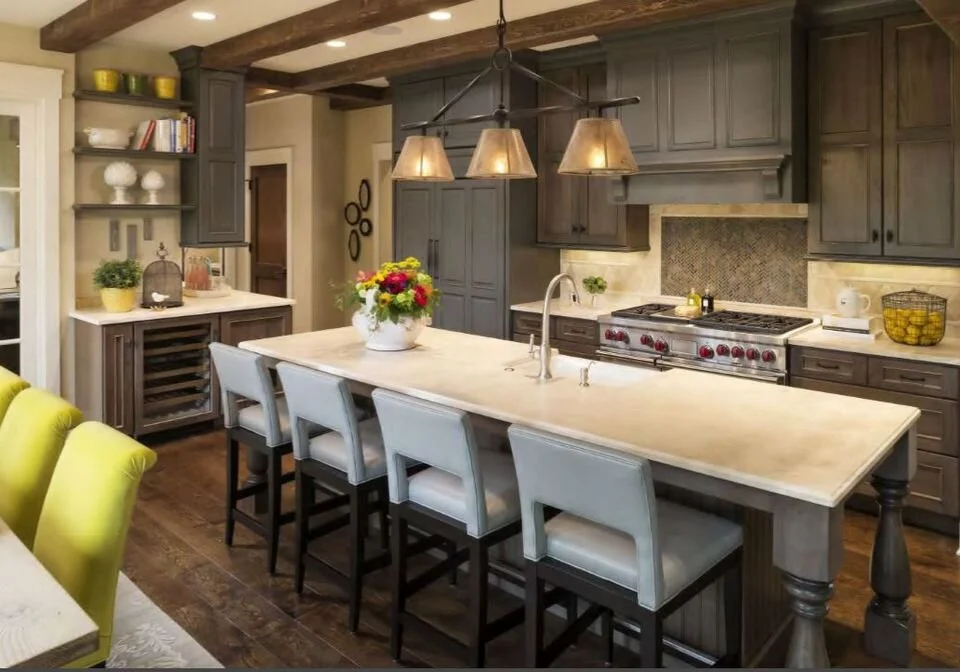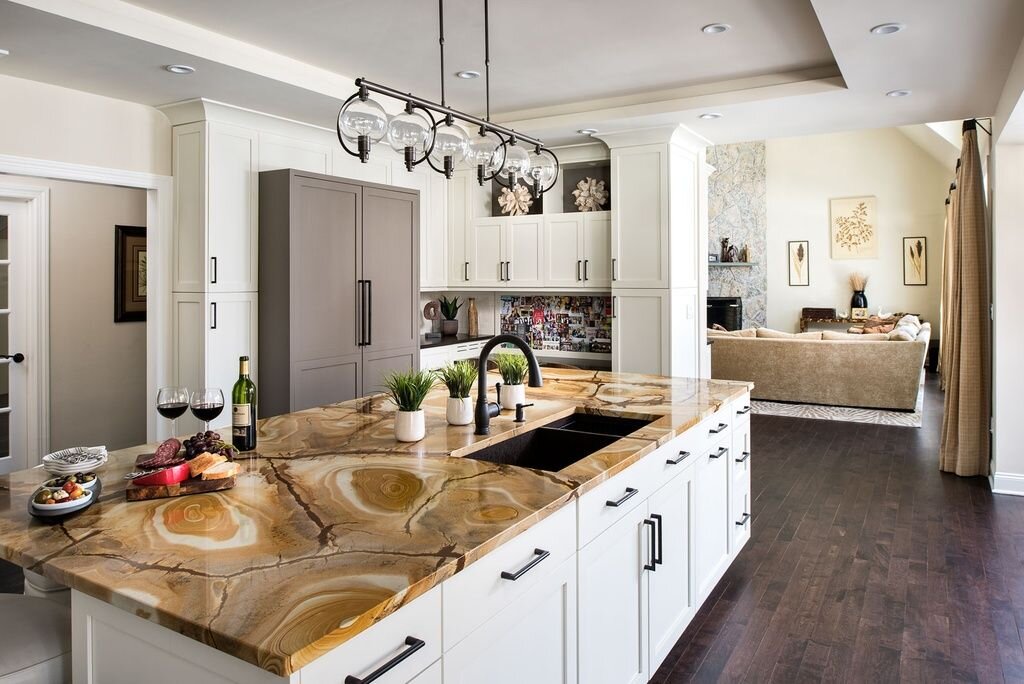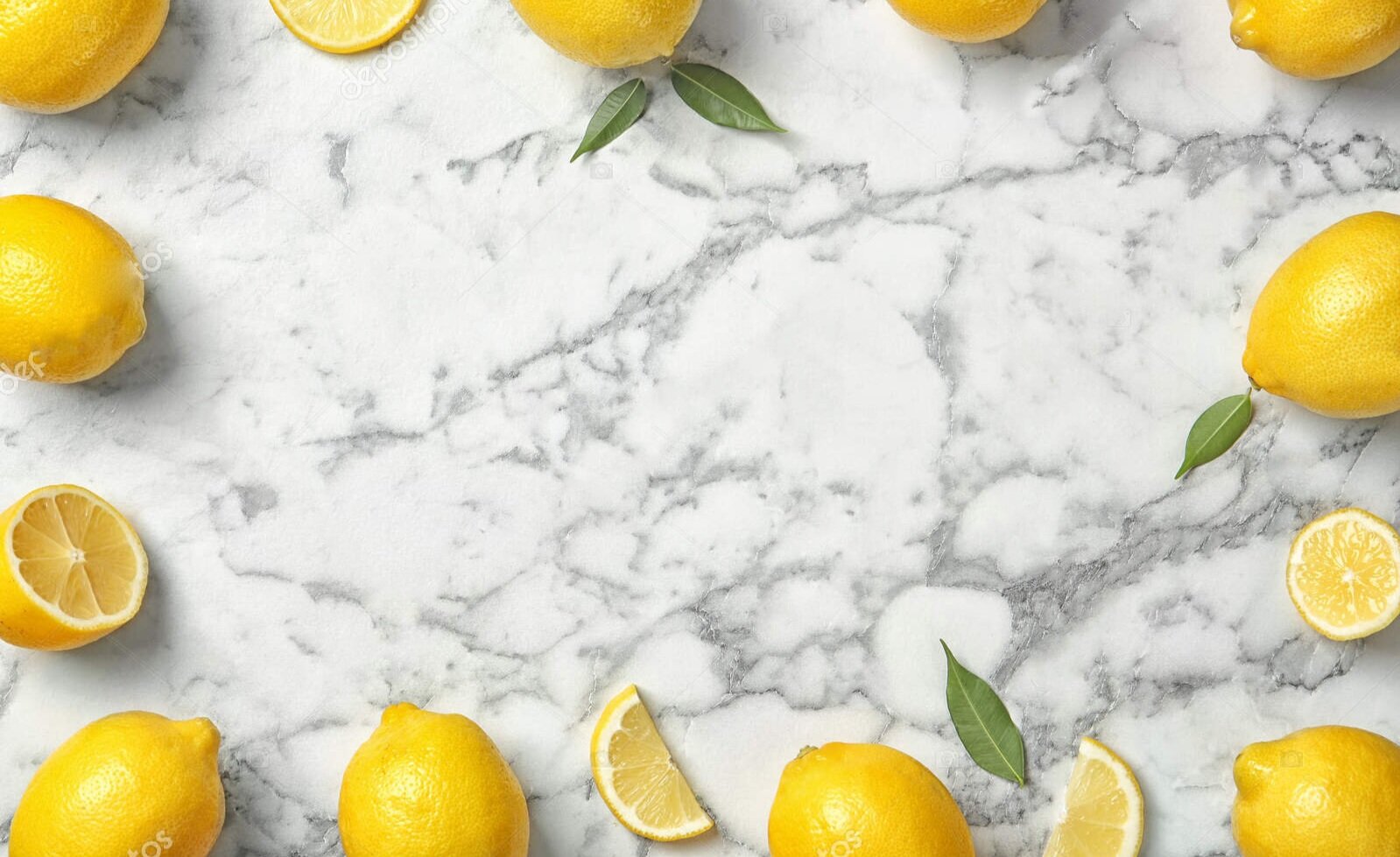
STONE EDUCATION

Have you been browsing the internet & finding mixed messages about stone?
Look no further, EleMar created this resource to help you understand the differences between the different stone options. We pride ourselves on testing materials we receive to make sure they are what they say they are! If this page doesn’t have the answers you need, feel free to contact us, or visit to speak to a knowledgeable stone consultant!
JUMP TO A SECTION
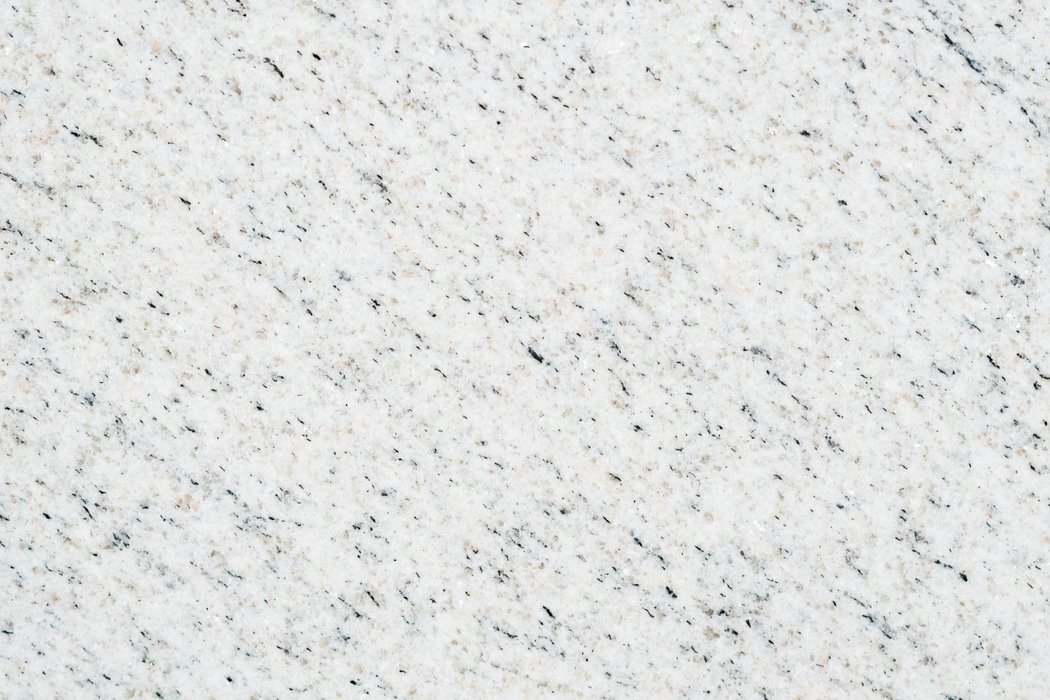
GRANITE
Granite is an excellent choice for kitchen countertops, floors, and other heavily used surfaces. Granite has a rich beauty that few other countertop materials can match. It is a natural product with timeless aura and appeal, and can easily become the centerpiece to your room. With the very many colors and styles, you can find one that complements your kitchen and style perfectly.
SCRATCH RESISTANCE: Granite is a very hard substance that is not easily susceptible to scratches. While it is not ideal to cut directly on your granite surface (because it will dull your knife!), it will take daily wear and tear very well.
MAINTENANCE: It is recommended that you seal your granite countertops yearly (or follow factory instructions on the sealer you use). Although many granite tops can go 10 years without being sealed, when it is overlooked too long, most granite will start to show signs of wear and tear. Cleaning is a breeze, a simple wipe with soapy water is the best way to clean your granite, or use a cleaner that is designed for natural stone. Avoid cleaners with ammonia or citrus on natural stone.
HEAT RESISTANCE: Granite resists heat, too, so use in the kitchen is ideal. It can tolerate very high temperatures without damaging, but it is always recommended that you use a trivet when putting hot items directly on the surface.
STAIN RESISTANCE: Your granite counter is very resistant to stains. A sealer will help prevent stains by keeping liquids from absorbing. If you notice water or other liquids absorbing on the surface, it may be time to reapply sealer.
WEATHER/UV RESISTANCE: Granite is a great option for outdoor applications. Being exposed to the elements, it is likely that signs of wear & tear will appear faster. It is important to keep up with a sealer to prevent your countertop from absorbing moisture. It is recommended that you keep a cover over your outdoor countertop while not in use, and a shelter structure over your countertop is ideal. And remember, stone can get very hot when in the sun all day (especially dark colors), so it helps to offer it some shade with an umbrella or other coverage.
WHAT ELSE? While these counters are super durable, a heavy object dropped on the corner may crack or chip the granite. This is uncommon, but may happen under the right circumstances.
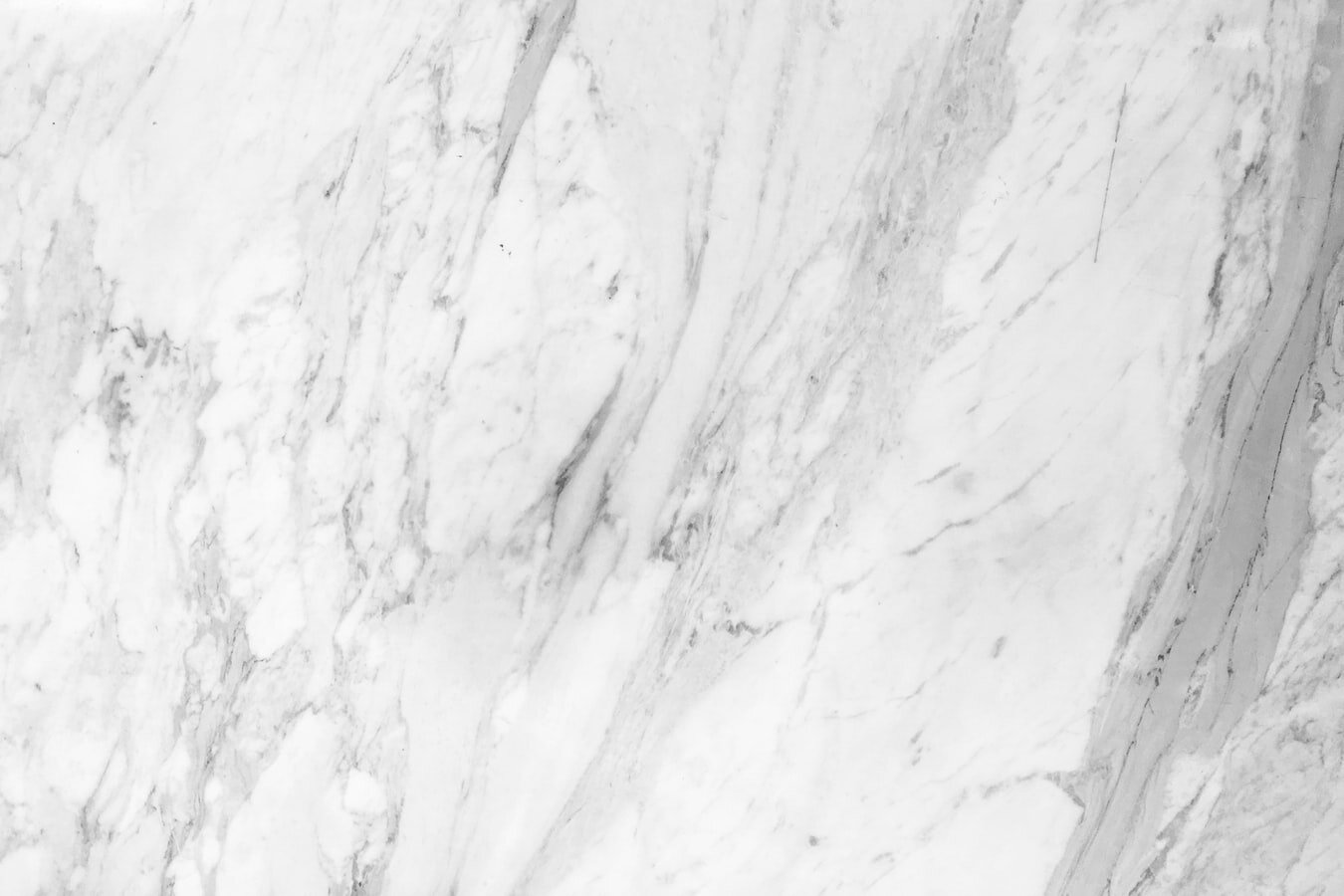
MARBLE
Marble, no matter what the application, will change, age, and wear over time. On a kitchen countertop or vanity you’ll want to address any concerns you have about etching and staining. Still, marble has been used for centuries in countless applications around the world, making it a beautiful choice for your countertop.
STAIN RESISTANCE: Marble is composed of calcium carbonate, which reacts with food acids commonly used in the kitchens such as citrus, tomato, and wine. This reaction leaves an etch mark (not to be confused with a stain), which looks like a dull spot or watermark on the surface. The reaction is not instant, it occurs when acids are left on the surface. Different types of marble will be more forgiving than others, and may etch faster or slower. Staining is possible if substances like sauce or wine are left on the surface long enough, a discoloration can be left behind. But when sealed properly, staining can be prevented. Remember, staining can be avoided with a sealer, but etching is unavoidable.
HEAT RESISTANCE: Marble can handle heat very well, it can tolerate very high temperatures without damaging, but it is always recommended that you use a trivet when putting hot items directly on the surface.
SCRATCH RESISTANCE: While marble is extremely hard & durable, it can scratch under the right conditions. Over time, you may notice scratches in high traffic areas from plates and other objects being dragged on the surface.
It is unlikely that knives can scratch your marble, but it is still recommended you do not cut directly on the surface.
MAINTENANCE: Sealing your marble is a necessity. It is recommended you follow the factory instructions for your sealer, and reseal when necessary. Using a sealer is the best way to prevent staining. For daily cleaning, soapy water is the best way to wipe down your counter. Natural stone cleaners can be used as well, just avoid cleaners such as Windex that contain ammonia or citrus.
WEATHER/UV RESISTANCE: Marble can be used outside, but understand it will age over time. Polished marble will eventually lose its shine when exposed to the elements. For best results, seal regularly and keep the surface covered when not in use.
WHAT ELSE? Many homeowners choose to hone or leather the surface of their marble countertops to help disguise the imperfections that appear over time. To see a real application of marble, visit our showroom where we have a Calacatta marble island with 18+ years of wear & tear. One of our knowledgeable stone consultants will be happy to help you figure out if marble is right for you!
Check out this video - Marble in the Kitchen. One of the biggest concerns people have when using marble in the kitchen is how it’s going to stand up to their daily use. This video features our own Calacatta marble island, and you will see real-time etch & stain tests performed on marble!
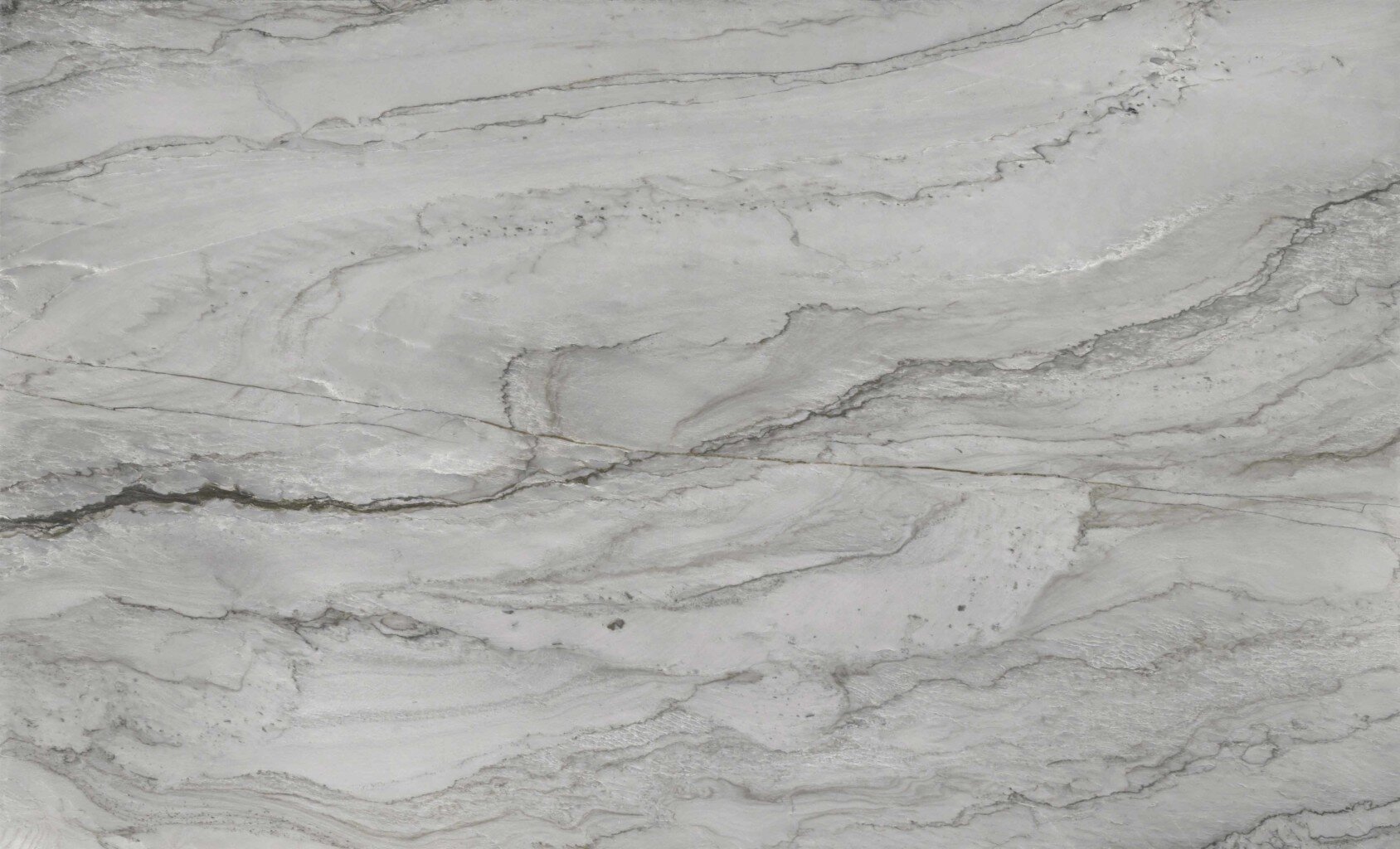
QUARTZITE
Quartzite has become a stylish material to use, with its soft veins and exotic color options. Quartzite consists of a larger volume of quartz than granite; under heat and pressure combined, quartzite is formed from sandstone and quartz, and with the amount of pressure undergone, empty grains of sandstone are stuffed with quartz. This means quartzite is actually slightly harder than granite!
SCRATCH RESISTANCE: Quartzite is not easily susceptible to scratches. It will take daily wear and tear very well!
STAIN RESISTANCE: A true quartzite WILL NOT etch like marble can. Porosity can vary with different kinds of quartzites, so it is important to go over porosity concerns with your project professional. Typically, properly sealing your quartzite will help with porosity concerns.
HEAT RESISTANCE: Use in the kitchen is idea because quartzite can tolerate very high temperatures without damaging, but it is always recommended that you use a trivet when putting hot items directly on the surface.
MAINTENANCE: It is recommended that you seal your quartzite countertops yearly (or follow factory instructions on the sealer you use) to prevent liquid absorption.
Cleaning is easy, a simple wipe with soapy water is the best way to clean your quartzite, or use a cleaner that is designed for natural stone. Avoid cleaners with ammonia or citrus on natural stone.
WEATHER/UV RESISTANCE: Quartzite is a great option for outdoor applications. Being exposed to the elements, it is likely that signs of wear & tear will appear faster. It is important to keep up with a sealer to prevent your countertop from absorbing moisture. It is recommended that you keep a cover over your outdoor countertop while not in use, and a shelter structure over your countertop is ideal.
WHAT ELSE? Unfortunately, many marbles out there are mislabeled as quartzites. The most commonly mislabeled material is Super White, often called Super White Quartzite. Super White is actually a dolomitic marble - AKA a very hard marble. Imagine installing a material you believe to be quartzite, and within weeks the true nature of the material shows itself by revealing an etch mark or stain. If you are not expecting this to happen, it can be quite frustrating. EleMar tests all their quartzites with acid, ensuring that they are true quartzites. We are happy to help you identify questionable materials you may find!
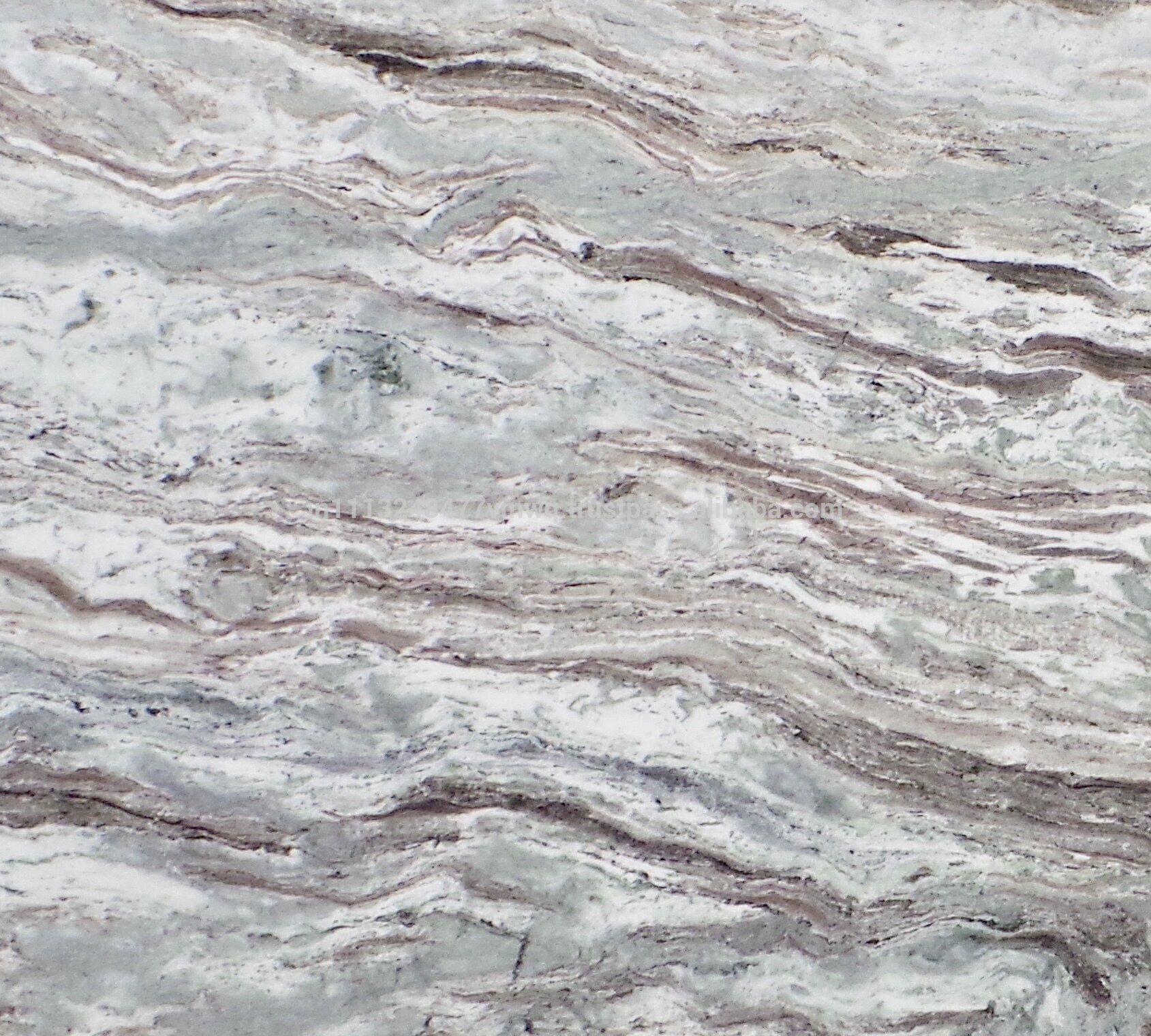
CALCITE
Known for its sparkly nature, Calcites are typically white and translucent and can have soft veins of light blue, gray, green and other light colors. Because of their grain structure and appearance, they can sometimes be mistaken as quartzite. However, these materials are actually in the marble family, and have most of the same qualities.
STAIN RESISTANCE: Calcite is closest in durability to marble, it can etch and stain – however it is slightly more forgiving than traditional marble, meaning a reaction can occur slower than it would on a traditional marble. Common substances used in the kitchen, like tomato sauce, lemon juice, and wine, are acidic and can still etch your countertop if they are not wiped up. Staining can be avoided by sealing your stone (but the sealer will not prevent etching).
HEAT RESISTANCE: Calcite can handle heat very well, it can tolerate very high temperatures without damaging, but it is always recommended that you use a trivet when putting hot items directly on the surface.
SCRATCH RESISTANCE: While calcite is extremely hard & durable, it can scratch under the right conditions. Over time, you may notice scratches in high traffic areas from plates and other objects being dragged on the surface. It is unlikely that knives can scratch your calcite, but it is still recommended you do not cut directly on the surface.
MAINTENANCE: Sealing your calcite is very important. It is recommended you follow the factory instructions for your sealer, and reseal when necessary. Using a sealer is the best way to prevent staining. For daily cleaning, soapy water is the best way to wipe down your counter. Natural stone cleaners can be used as well, just avoid cleaners such as Windex that contain ammonia or citrus.
WEATHER/UV RESISTANCE: Calcites can be used outside, but understand it will age over time, making it less ideal than using a granite outside. Polished calcite will eventually lose its shine when exposed to the elements. For best results, seal regularly and keep the surface covered when not in use.
WHAT ELSE? Like with marble, a honed or leather finish is often used to help disguise any imperfections that are caused over time. Fantasy Brown is one example of a calcite that is often mislabeled as a quartzite or granite. Fantasy Brown can etch and have the same durability as other harder marbles. We would be happy to go over the expectations when installing this in your kitchen or bath.
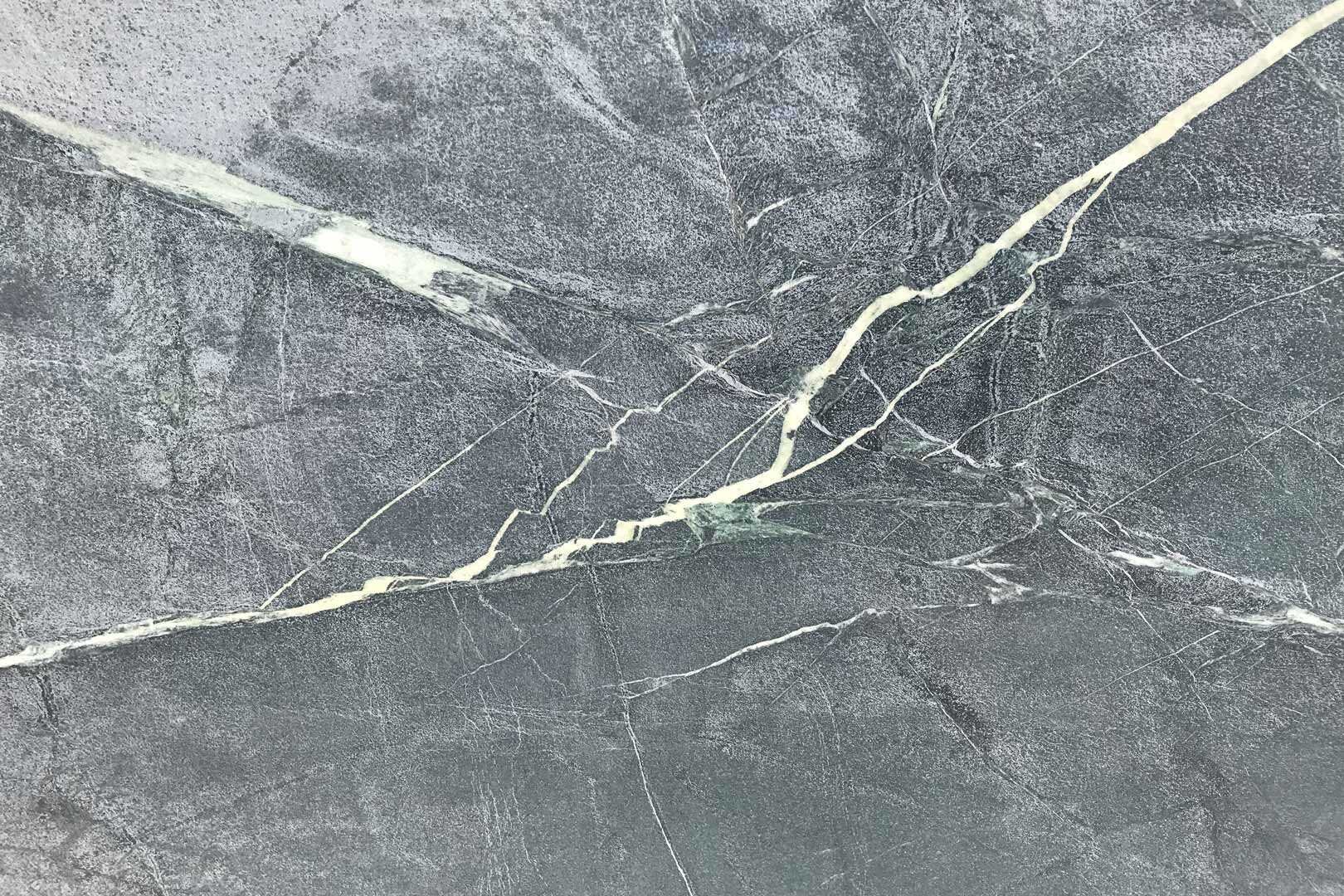
SOAPSTONE
Chemistry class might’ve been your first experience with Soapstone, where it was the countertop material of choice due to its chemically inert composition and high density, making it impervious to stains and bacteria. If soapstone can hold up to high school students and Bunsen burners, it might be the right choice for your kitchen or bathroom.
HEAT RESISTANCE: One cool fact about soapstone is that it is almost totally resistance to heat! Soapstone is known for being an incredibly dense stone. The very dense nature of soapstone also makes it a truly hygienic surface for food preparation.
STAIN RESISTANCE: Soapstone will not stain due to its density and non-porous nature. It can darken over time, but the use of a mineral oil can help achieve a dark, even appearance.
SCRATCH RESISTANCE: Soapstone may be dense, but it is still one of the softest countertop options. This makes it very susceptible to scratching. However, the ‘soft but dense’ nature of soapstone makes it easy to repair mishaps simply by using a soft sander, and yet allows for an aging process that many think makes it look better with time. Scratches can also be hidden by using a mineral oil on the surface regularly.
WEATHER/UV RESISTANCE: Soapstone can be used outdoors, its non-porous attributes make it resist the elements.
If you live near the ocean or an area where heavy snow is common, no worries! Your soapstone will be unharmed by intense heat, cold, rain or salt. It is always a good idea to cover your outdoor countertops when not in use.
WHAT ELSE? Small scratches can easily be hidden with a little mineral oil, while deeper scratches in your soapstone can be removed with a sandpaper buffing. Watch this video by M. Teixeira Soapstone to see how it’s done!
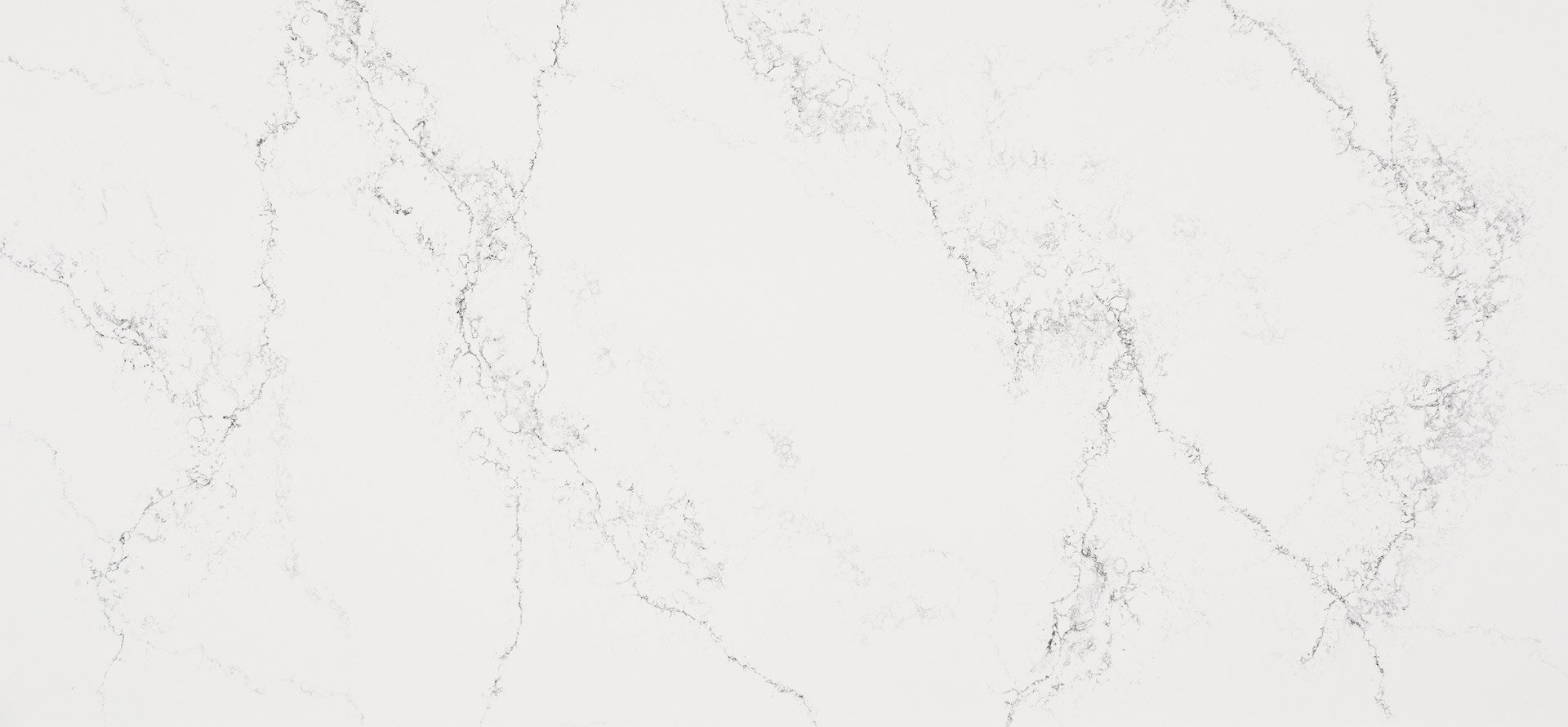
QUARTZ
Quartz, not to be confused with natural quartzite, is a manmade material consisting of natural quartz and polymer resins. EleMar carries the Caesarstone line and the EleQuence line, and there are dozens of color options to choose from. Certain quartz colors can mimic the appearance of marble, without the maintenance that comes with natural marble. It also has a variety of other looks, such as limestone, concrete and granite appearances.
HEAT RESISTANCE: While quartz is heat resistant, it can scorch under very high temperatures. Never put a hot pot directly on a quartz surface!
STAIN RESISTANCE: Another appealing part of quartz is its stain resistance. A polished quartz will resist stains easily, and other finishes may only require a little extra cleaning to lift out stubborn marks.
SCRATCH RESISTANCE: Quartz is a very hard substance that is not easily susceptible to scratches. However, you should always use a cutting board when cutting on the surface.
MAINTENANCE: Quartz does not require sealing, which is appealing to homeowners. A polished quartz will have little to no maintenance, a simple cleaning with soapy water will keep it looking beautiful. With other offered finishes such as honed, rugged, natural, and concrete, there can be additional maintenance when it comes to cleaning. It is recommended that tougher messes like coffee rings and dirt be cleaned with a mild abrasive like Soft Scrub. Clean the countertop surface weekly with Soft Scrub for best results!
WEATHER/UV RESISTANCE: Quartz is not designed for outdoor use. Caesarstone offers an outdoor collection which are specifically designed for use outside, view available colors here.
WHAT ELSE? If you need more info on honed, rugged, natural, and concrete finishes, visit Caesarstone’s Care & Maintenance page for care instructions and what to expect. Or, contact EleMar for details!
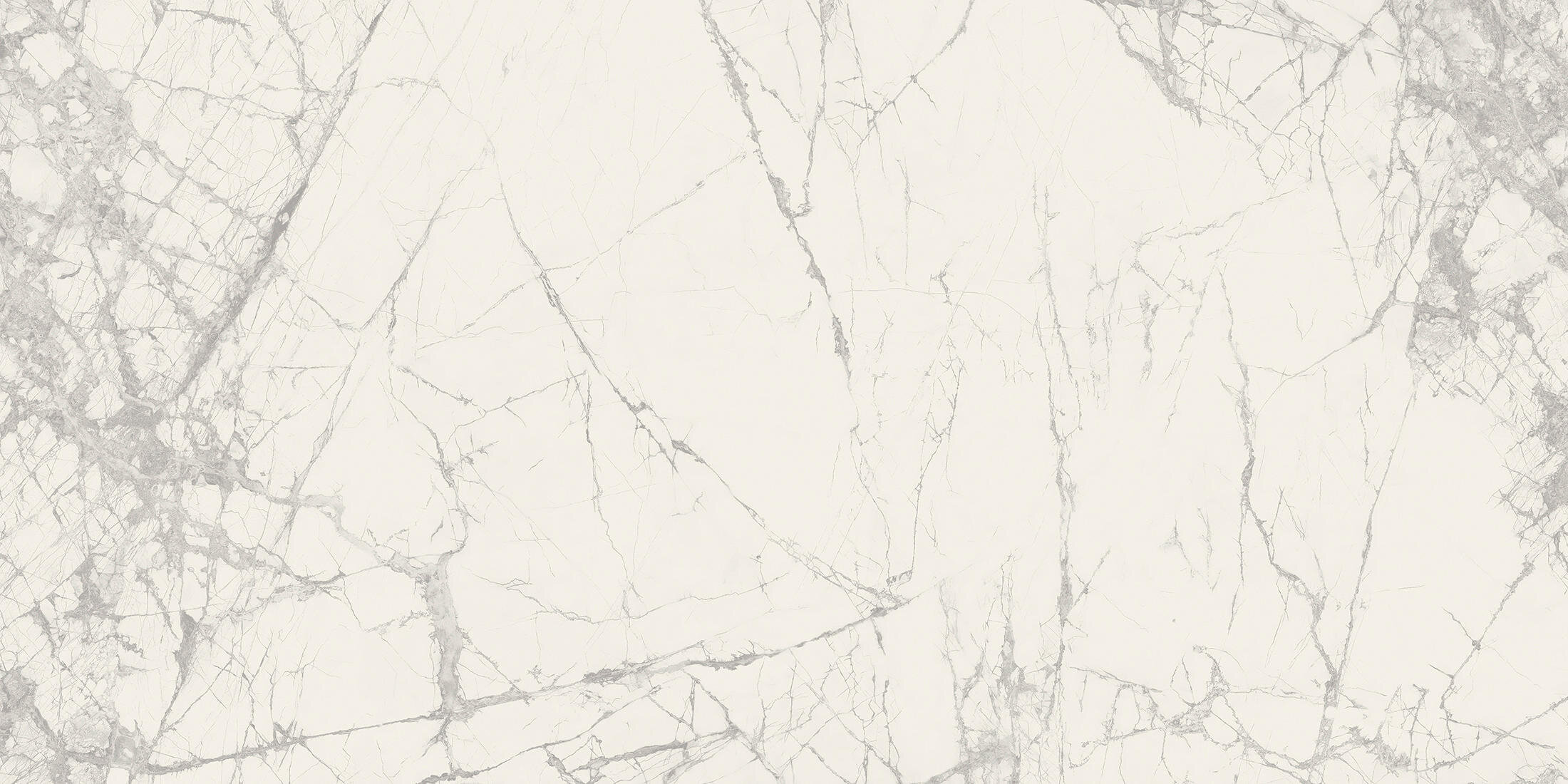
PORCELAIN
Porcelain is a manmade material created from minerals and clay, and fired at very high temperatures. Porcelain, like quartz, has color options that mimic the appearance of marble, limestone, and other natural materials. This material can be used for a number of different applications – being 12mm thick it is ideal for shower walls, floor-to-ceiling fireplace details, and of course, countertops!
HEAT RESISTANCE: Porcelain is extremely resistant to heat. A hot pot may not harm the surface, but it is not recommended.
STAIN RESISTANCE: You will not have to worry about stains with porcelain. You may see the occasional surface stain that requires some elbow grease to clean up, but it will not penetrate your counter.
SCRATCH RESISTANCE: Another great quality of porcelain is its high scratch resistance. Most daily use items will be no match for porcelain, but you
will want to be careful with ceramic knives and other ceramic items, which have the ability to scratch under the right circumstances. Always use a cutting board and the use of felt or rubber feet under counter appliances, vases, etc. will help.
MAINTENANCE: There is little to no maintenance with porcelain! For cleaning, we suggest wiping with soapy water, or a mild cleaner.
WEATHER/UV RESISTANCE: Porcelain is resistant to UV rays, so it can be used in outdoor applications. It is always a good idea to cover your outdoor countertops when not in use.
WHAT ELSE? We have a few different porcelain lines in stock offered in 12mm thickness. When using porcelain for countertop applications, you have the option to miter the edge to achieve a thicker edge appearance (see image below). You can see edge options and installed porcelain in our showroom! Talk to your fabricator about porcelain, and what types of edging they offer.
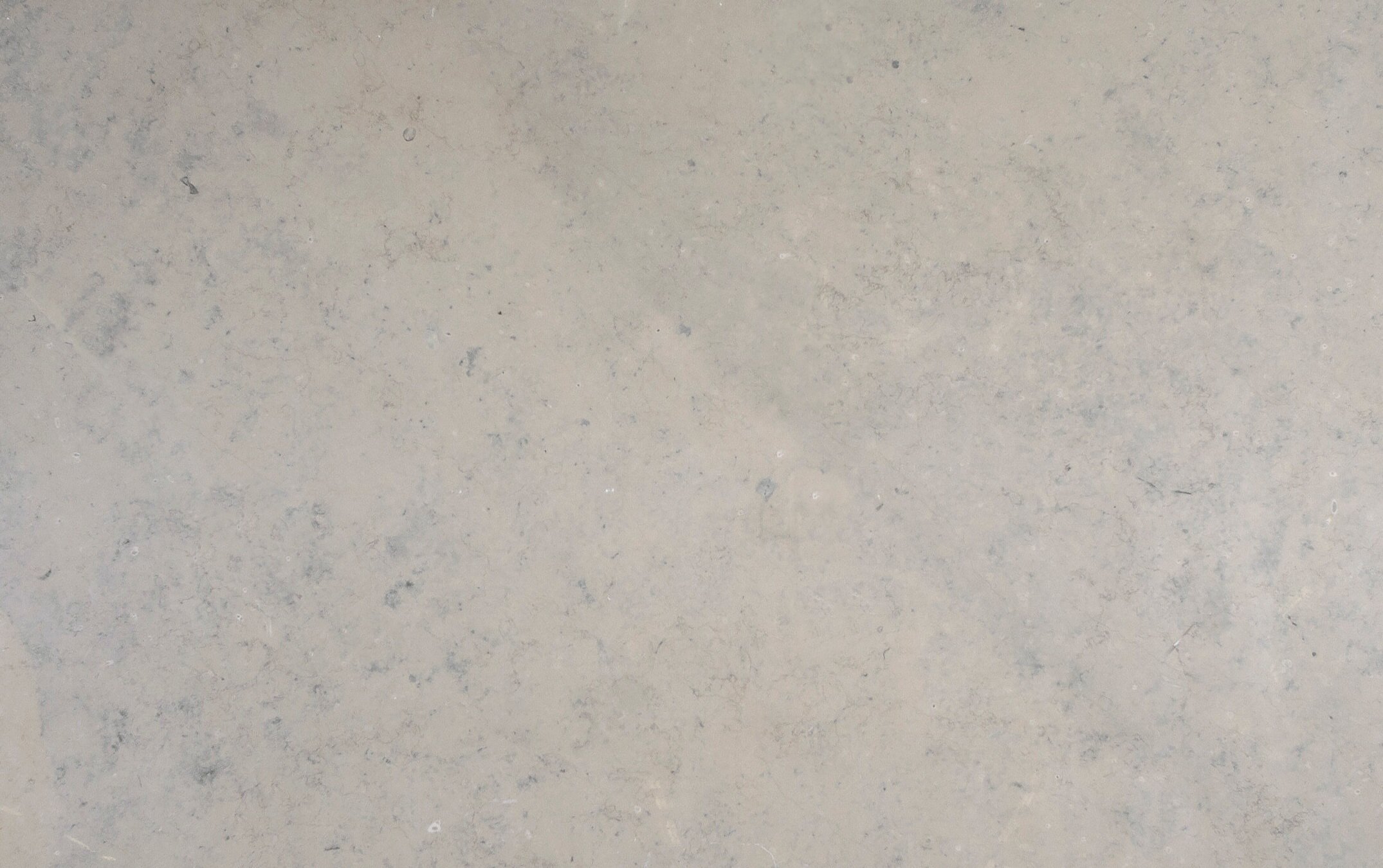
LIMESTONE
You may know limestone as a popular material, so popular that it was used centuries ago in historical sites like the Parthenon and the Great Pyramid! It is made up of exoskeletons of coral, shells, and algae! It is a gorgeous material with a minimalist appeal, offering a variety of shades. No wonder it has been used since ancient times!
HEAT RESISTANCE: Limestone is resistant to heat! Always use a trivet under hot pots to be safe.
STAIN RESISTANCE: Because limestone has a calcium base like marble, it can etch when exposed to acids. Limestone is also quite porous, so sealing is very important to prevent liquids from absorbing and causing discolorations. Certain limestones are denser than others making them slightly more durable, but all limestones will be prone to etching.
SCRATCH RESISTANCE: Being a softer material, it has the tendency to scratch easier than most other natural stone. Never cut directly on your limestone, as a knife can scratch the surface easily. Also be careful dragging objects across your counter.
MAINTENANCE: Keeping up with your sealer will prevent stains and discolorations. Otherwise, clean your limestone with a non-acidic cleanser or a cleaner designed for natural stone. Daily messes can be wiped with a damp cloth.
WEATHER/UV RESISTANCE: Limestone can be used outside, although it is not the most practical option. Because of its tendency to etch, acid rain can damage limestone if left exposed. If used outside, make sure you keep up with the sealer and always cover your counters when not in use.

ONYX
Onyx is undeniably a statement stone, and if you are willing to put in the extra work to install it on your counters, you will certainly have a conversation piece! Onyx is more commonly used on low traffic areas like fireplace surrounds, vertical applications, and bar tops. Because of its translucency, light can penetrate though. So the material can be backlit or used in a window or skylight. There’s no question that onyx is eye-catching with its mesmerizing patterns and colors.
HEAT RESISTANCE: Like most natural stone, onyx is very tolerant to heat without damage.
STAIN RESISTANCE: You can expect onyx to etch and stain due to its softness and calcium makeup. A sealer will help prevent staining, but in order to avoid etching make sure harsh chemicals are not used on the surface like alcohol and ammonia. All acidic spills should be wiped immediately, as items like citrus, coffee and wine can etch the surface as well.
SCRATCH RESISTANCE: Because onyx is a softer material, it is susceptible to scratching. This is why most applications of onyx are not recommended for high-traffic areas.
MAINTENANCE: Onyx is fragile, so when choosing to install it most fabricators will choose to apply additional support with fiberglass. Using a sealer will help with staining, but always clean up adidic substances promptly to avoid etching. A cleaner designed for natural stone is highly recommended for frequent use. Because of its low scratch and stain resistance, it is not uncommon for onyx to need refinishing to restore the surface back to a smooth state.
WEATHER/UV RESISTANCE: It is not recommended to use onyx for outdoor applications.
WHAT ELSE? Many stones like onyx, marble, and limestone can develop a patina over time, meaning they will age and wear during the many years it is installed in your home. While materials like this do require additional maintenance, they are also beautiful and timeless. If you find a patina stone just as gorgeous as a brand new stone, then these materials are perfect for you! It’s all about understanding and accepting your stone.
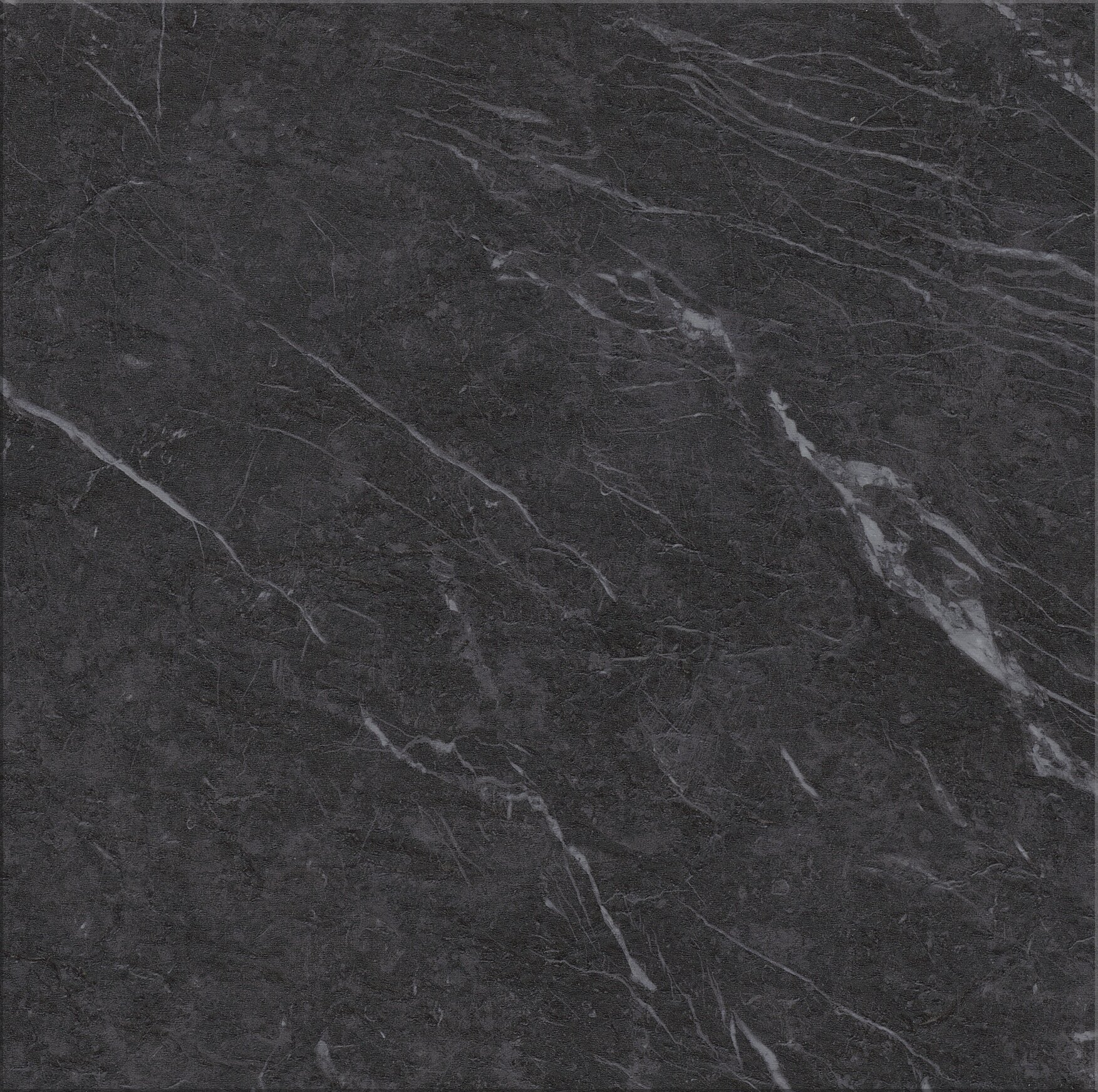
SLATE/SCHIST
Slate is an uncommon yet beautiful option for countertop applications, offering a wonderful texture and unique colors. You will find slate on some historical buildings, floors, and roofs due to its sturdy nature. If you are looking for a rustic and distinctive option, learn more about slate to see if it’s right for you!
HEAT RESISTANCE: Like most natural stone, slate is very tolerant to heat without damage.
STAIN RESISTANCE: Due to its composition of calcium carbonate, slate has the ability to etch and stain. A sealer will help prevent staining, but in order to avoid etching make sure harsh chemicals are not used on the surface like alcohol and ammonia. All acidic spills should be wiped immediately, as items like citrus, coffee and wine can etch the surface as well.
SCRATCH RESISTANCE: It wouldn’t be used in the most historical buildings if it wasn’t strong. Slate is highly scratch resistant! However, because slate can be brittle you
will want to watch out for chipping, especially on the edges of your countertop. It is recommended that homeowners choose an eased edge to prevent chips and prevent the edge from being too sharp.
MAINTENANCE: Yearly sealing is important to prevent stains and water absorption. When cleaning, never use a harsh chemical like Windex or anything alcohol/citrus based. Wiping with a damp cloth is recommended for daily cleaning.
WEATHER/UV RESISTANCE: Slate can be used outdoors! Maintaining the sealer is especially important when outdoors because acid rain has the ability to etch the surface of your slate. Always cover your outdoor slate counters when not in use.







